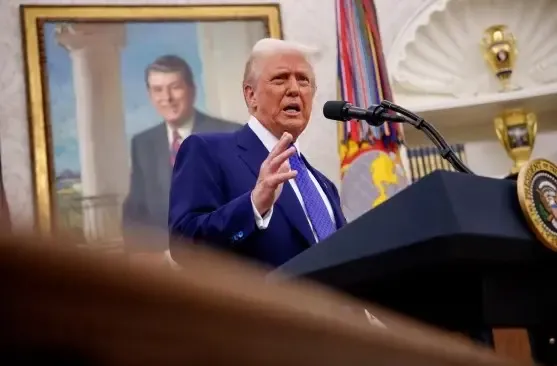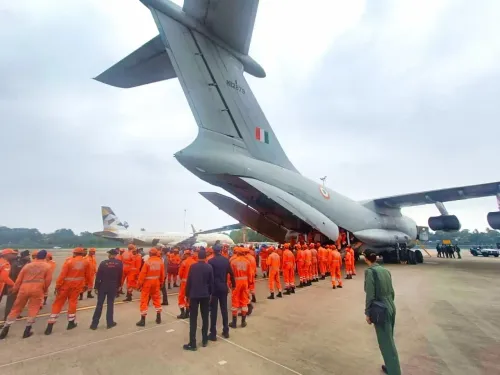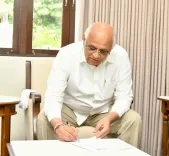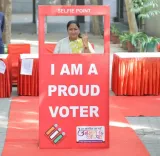Trump Reveals Strategy for 'Equitable, Reciprocal' Tariffs Without Immediate Enforcement

Synopsis
Key Takeaways
- Trump plans to impose 'equitable and reciprocal' tariffs.
- 180-day timeline for tariff strategy development.
- Focus on trade imbalances and unfair advantages.
- Negotiations possible before tariffs are enforced.
- Countries like India and Japan might face new tariffs.
New York, Feb 14 (NationPress) President Donald Trump has revealed a strategy to implement 'equitable and reciprocal' tariffs on all nations, alleging that they impose higher tariffs than the United States. However, he has chosen not to enforce any tariffs immediately.
Trump did not specify the new tariffs, but he issued a memorandum on Thursday requesting his nominees, Howard Lutnick for Commerce Secretary and Jamieson Greer for the international trade representative, to develop a tariff strategy for each nation within 180 days.
In addition to tariffs, they are tasked with evaluating government subsidies for exports and manipulated exchange rates that may afford other countries unfair advantages.
This 180-day timeframe allows room for negotiations with nations potentially impacted by the forthcoming tariffs.
While issuing the memorandum, Trump stated, 'In nearly all instances, they are charging us significantly more than we charge them, but those days are finished.'
'For the sake of fairness, I have determined that I will impose a reciprocal tariff, meaning whatever countries charge the United States.'
Promoting his 'Make in America' initiative, Trump noted that if manufacturing returned to the U.S., those industries would not face tariffs.
The memo regarding the reciprocal tariff plan was released just hours before Trump's meeting with visiting Prime Minister Narendra Modi, a subject likely to arise during their discussions.
Trump's trade and manufacturing advisor, Peter Navarro, indicated that India, along with Japan and the European Union, could be among the targets for the new tariffs to be recommended.
In the recent budget, India lowered tariffs on heavy motorcycles, which is a particular concern for Trump, as well as on some agricultural products from the U.S.
Trump aims to address budget deficits, especially in light of his tax cut plans, by imposing higher tariffs.
So far, Trump has enforced only one set of tariffs from those he has proposed: an additional 10 percent on Chinese imports, in addition to existing duties. A 25 percent duty on steel and aluminum imports announced this week, along with 25 percent duties on imports from Canada and Mexico that Trump has postponed, will not take effect until the first week of March.
His nominee to lead the Office of Management and Budget, Russell Vought, has been tasked with preparing a report on the fiscal implications of new tariffs.
Trump has threatened additional tariffs on automobiles, semiconductors, and pharmaceuticals, alongside the reciprocal tariffs that will be disclosed later.










